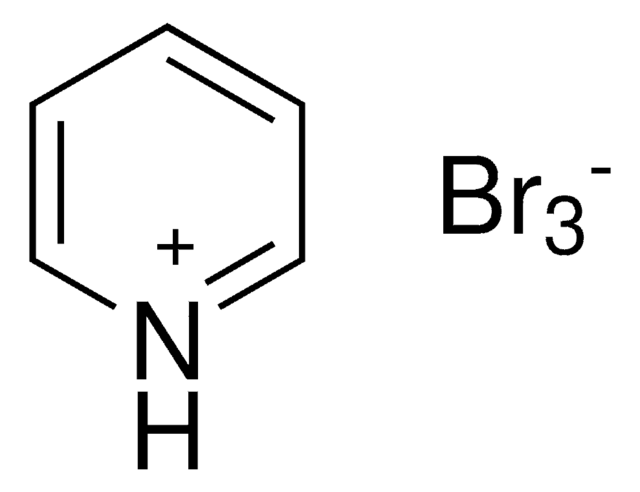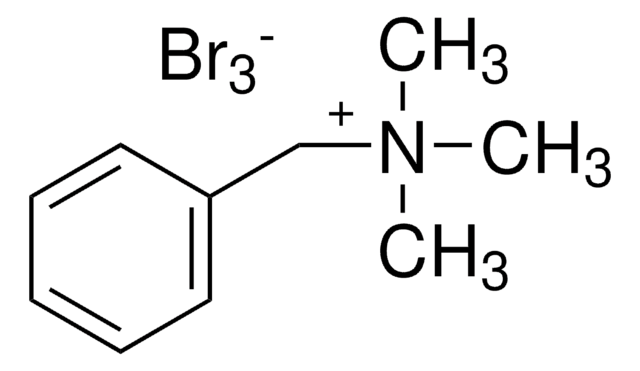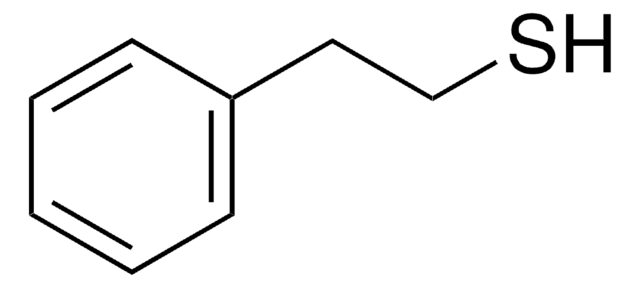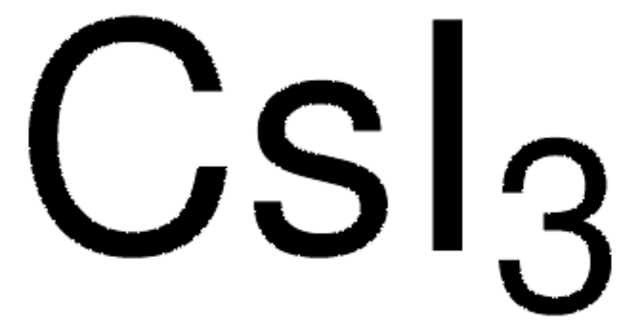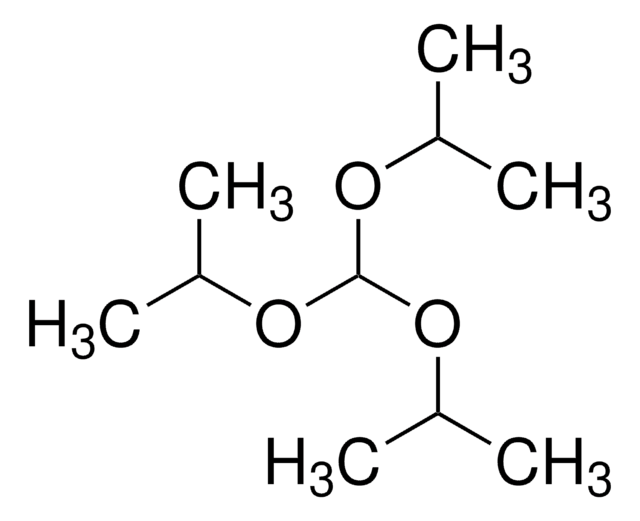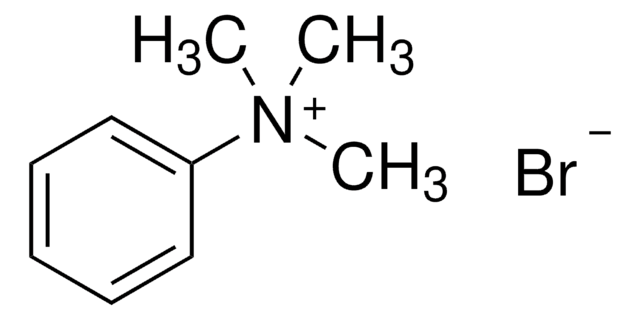301590
Tetrabutylammonium tribromide
98%
Synonym(s):
TBABr3, Tetrabutylammonium bromide perbromide
Sign Into View Organizational & Contract Pricing
All Photos(1)
About This Item
Linear Formula:
(CH3CH2CH2CH2)4NBr3
CAS Number:
Molecular Weight:
482.18
Beilstein:
3746114
MDL number:
UNSPSC Code:
12352101
PubChem Substance ID:
NACRES:
NA.22
Recommended Products
Quality Level
Assay
98%
mp
71-76 °C (lit.)
SMILES string
Br[Br-]Br.CCCC[N+](CCCC)(CCCC)CCCC
InChI
1S/C16H36N.Br3/c1-5-9-13-17(14-10-6-2,15-11-7-3)16-12-8-4;1-3-2/h5-16H2,1-4H3;/q+1;-1
InChI key
XXSLZJZUSYNITM-UHFFFAOYSA-N
Looking for similar products? Visit Product Comparison Guide
Application
Tetrabutylammonium tribromide can be used:
- As a catalyst in the preparation of O-isopropylidene derivatives of free sugars.
- As a reagent in methanol for the cleavage of tert-butyldimethylsilyl (TBDMS) ethers chemoselectively.
- As a catalyst in the synthesis of bis-indolymethanes by electrophilic substitution of indoles with different aldehydes.
Signal Word
Warning
Hazard Statements
Precautionary Statements
Hazard Classifications
Eye Irrit. 2 - Skin Irrit. 2 - STOT SE 3
Target Organs
Respiratory system
Storage Class Code
11 - Combustible Solids
WGK
WGK 3
Flash Point(F)
Not applicable
Flash Point(C)
Not applicable
Personal Protective Equipment
dust mask type N95 (US), Eyeshields, Gloves
Choose from one of the most recent versions:
Already Own This Product?
Find documentation for the products that you have recently purchased in the Document Library.
Customers Also Viewed
Tetrabutylammonium tribromide (TBATB): a mild and efficient catalyst for O-isopropylidenation of carbohydrates
Khan AT, et al.
Carbohydrate Research, 346(5), 673-677 (2011)
Tetrabutylammonium tribromide (TBATB)- MeOH: An efficient chemoselective reagent for the cleavage of tert-butyldimethylsilyl (TBDMS) ethers
Gopinath R and Patel BK
Organic Letters, 2(26), 4177-4180 (2000)
Mild and Efficient Synthesis of bis-Indolylmethanes Catalyzed by Tetrabutylammonium Tribromide
Lin X, et al.
Synthetic Communications, 36(21), 3153-3160 (2006)
Shigeo Hayashi et al.
Journal of enzyme inhibition and medicinal chemistry, 29(6), 846-867 (2014-02-13)
Because of the pivotal role of cyclooxygenase (COX) in the inflammatory processes, non-steroidal anti-inflammatory drugs (NSAIDs) that suppress COX activities have been used clinically for the treatment of inflammatory diseases/syndromes; however, traditional NSAIDs exhibit serious side-effects such as gastrointestinal damage
Our team of scientists has experience in all areas of research including Life Science, Material Science, Chemical Synthesis, Chromatography, Analytical and many others.
Contact Technical Service

